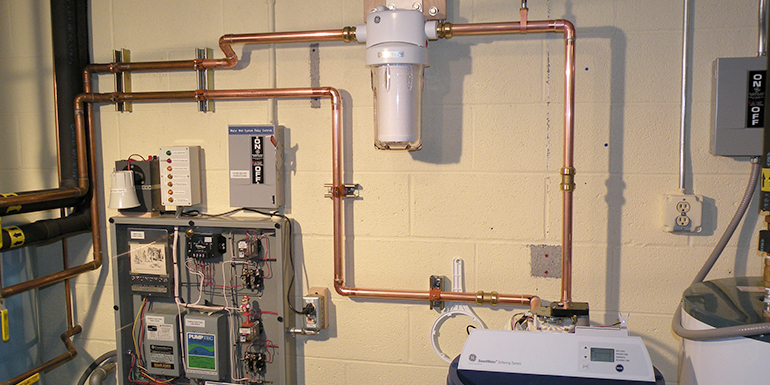
January 22/2022
How to Know If You Need a Water Softener
If your drinking water is looking, smelling, or tasting a little, well, unappetizing, then it might be time to look into some water filtration options. A water softener is a specific type of water filtration system. If you are not familiar with the water softener, then you are at the right place. In this brief article, we will go over signs that indicate you may need a water softener as well as how the water softener works. If you know you need a water softener, then call Mr. Rooter Plumbing of New Jersey to schedule your water softener installation today. Our dedicated plumbers are experienced, trained, and equipped to get the job done right the first time around.
What Is "Hard Water?"
Why does water need to be "softened" anyway? What do we mean by "hard water?" In short, water hardness is defined by the measure of mineral content in the water. Specifically, hard water is water that has high mineral content, particularly calcium and magnesium carbonates, bicarbonates, and sulfates. Hard water is often formed when water permeates through limestone, chalk, or gypsum deposits.
What Are the Effects of Hard Water?
First and foremost, you will be happy to learn that hard water does not pose a serious health risk. However, there can be minor effects. For example, the minerals can mix with hair products to form a salt. This can keep your scalp from absorbing moisturizer and result in dry scalp and tangled hair. Further, the minerals can prevent shampoo and soap from properly dissolving. This is why you might feel slimy after trying to wash your hands with hard water.
The most visible consequence of hard water happens to appliances, silverware, and glassware. If you have noticed chalky buildup on your shower glass, faucets, showerhead, forks, and cups, then you have witnessed the effect of hard water. That mineral buildup can also happen within the plumbing pipes and appliances such as the water heater. Over time, the buildup can cause blockages and serious damage to your plumbing and appliances.
How a Water Softener Works
You can guess by now that a water softener reduces the amount of minerals in the water supply, but how?
When hard water enters the water softener system, it flows through portions of resin beads in the softener tank. As water passes through, the positively charged minerals (such as calcium, magnesium, iron, and sodium) attach to the negatively charged tank. The filtered, or "softened," water continues through the plumbing system and is distributed throughout your building.
Every few days, the water softener draws salt water from the brine tank. This negatively charges the softener tank and releases the positively charged minerals to be flushed out of the plumbing system.
Schedule Your Water Softener Installation
Are you tired of cleaning that chalky residue off of faucets, silverware, and glassware? If so, then call Mr. Rooter Plumbing of New Jersey to schedule a water softener installation. We are happy to give you a free price estimate upfront.




